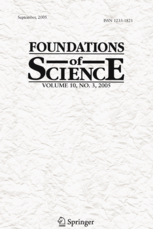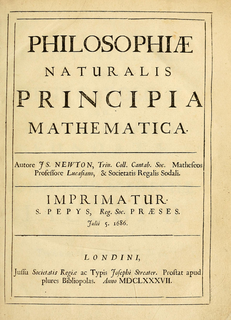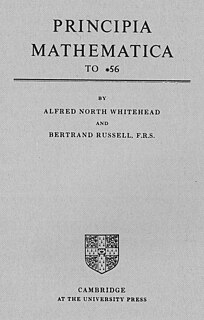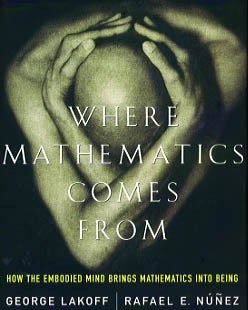 W
WThe Foundations of Arithmetic is a book by Gottlob Frege, published in 1884, which investigates the philosophical foundations of arithmetic. Frege refutes other theories of number and develops his own theory of numbers. The Grundlagen also helped to motivate Frege's later works in logicism. The book was not well received and was not read widely when it was published. It did, however, draw the attentions of Bertrand Russell and Ludwig Wittgenstein, who were both heavily influenced by Frege's philosophy. An English translation was published by J. L. Austin, with a second edition in 1960.
 W
WFoundations of Science is a peer-reviewed interdisciplinary academic journal focussing on methodological and philosophical topics concerning the structure and the growth of science. It is the official journal of the Association for Foundations of Science, Language and Cognition and is published quarterly by Springer Science+Business Media. The journal was established in 1995. The editor in chief is Diederik Aerts.
 W
WFrege: Philosophy of Mathematics is a 1991 book about the philosopher Gottlob Frege by the British philosopher Michael Dummett.
 W
WThe Indispensability of Mathematics is a 2001 book by Mark Colyvan in which he examines the Quine–Putnam indispensability thesis in the philosophy of mathematics. This thesis is based on the premise that mathematical entities are placed on the same ontological foundation as other theoretical entities indispensable to our best scientific theories.
 W
WThe Logical Investigations are a two-volume work by the philosopher Edmund Husserl, in which the author discusses the philosophy of logic and criticizes psychologism, the view that logic is based on psychology.
 W
WA Mathematician's Lament, often referred to informally as Lockhart's Lament, is a short book on mathematics education by Paul Lockhart, originally a research mathematician at Brown University and U.C. Santa Cruz, and subsequently a math teacher at Saint Ann's School in Brooklyn, New York City for many years. This strongly worded opinion piece is organized into two parts. The first part, "Lamentation", criticizes the way mathematics is typically taught in American schools and argues for an aesthetic, intuitive, and problem-oriented approach to teaching. The second part, "Exultation", gives specific examples of how to teach mathematics as an art.
 W
WPhilosophiæ Naturalis Principia Mathematica, often referred to as simply the Principia, is a work in three books by Isaac Newton, in Latin, first published 5 July 1687. After annotating and correcting his personal copy of the first edition, Newton published two further editions, in 1713 and 1726. The Principia states Newton's laws of motion, forming the foundation of classical mechanics; Newton's law of universal gravitation; and a derivation of Kepler's laws of planetary motion.
 W
WPhilosophy of Arithmetic: Psychological and Logical Investigations is an 1891 book about the philosophy of mathematics by the philosopher Edmund Husserl. Husserl's first published book, it is a synthesis of his studies in mathematics, under Karl Weierstrass, with his studies in philosophy and psychology, under Franz Brentano, to whom it is dedicated, and Carl Stumpf.
 W
WThe Physics is a named text, written in ancient Greek, collated from a collection of surviving manuscripts known as the Corpus Aristotelicum, attributed to the 4th-century BC philosopher Aristotle.
 W
WThe Principia Mathematica is a three-volume work on the foundations of mathematics written by the philosophers Alfred North Whitehead and Bertrand Russell and published in 1910, 1912, and 1913. In 1925–27, it appeared in a second edition with an important Introduction to the Second Edition, an Appendix A that replaced ✸9 and all-new Appendix B and Appendix C. PM is not to be confused with Russell's 1903 The Principles of Mathematics. PM was originally conceived as a sequel volume to Russell's 1903 Principles, but as PM states, this became an unworkable suggestion for practical and philosophical reasons: "The present work was originally intended by us to be comprised in a second volume of Principles of Mathematics... But as we advanced, it became increasingly evident that the subject is a very much larger one than we had supposed; moreover on many fundamental questions which had been left obscure and doubtful in the former work, we have now arrived at what we believe to be satisfactory solutions."
 W
WRemarks on the Foundations of Mathematics is a book of Ludwig Wittgenstein's notes on the philosophy of mathematics. It has been translated from German to English by G.E.M. Anscombe, edited by G.H. von Wright and Rush Rhees, and published first in 1956. The text has been produced from passages in various sources by selection and editing. The notes have been written during the years 1937-1944 and a few passages are incorporated in the Philosophical Investigations which were composed later. When the book appeared it received many negative reviews mostly from working logicians and mathematicians, among them Michael Dummett, Paul Bernays, and Georg Kreisel. Today Remarks on the Foundations of Mathematics is read mostly by philosophers sympathetic to Wittgenstein and they tend to adopt a more positive stance.
 W
WThe Taming of Chance is a 1990 book about the history of probability by the philosopher Ian Hacking. First published by Cambridge University Press, it is a sequel to Hacking's The Emergence of Probability (1975). The book received positive reviews.
 W
WWhere Mathematics Comes From: How the Embodied Mind Brings Mathematics into Being is a book by George Lakoff, a cognitive linguist, and Rafael E. Núñez, a psychologist. Published in 2000, WMCF seeks to found a cognitive science of mathematics, a theory of embodied mathematics based on conceptual metaphor.